Sankha Subhra Bhattacharjee
Robust Fixed-Filter Sound Zone Control with Audio-Based Position Tracking
Oct 10, 2024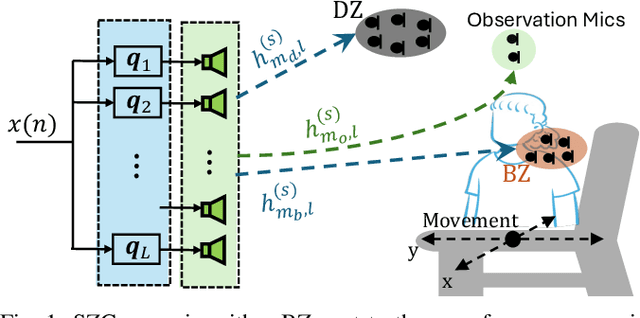
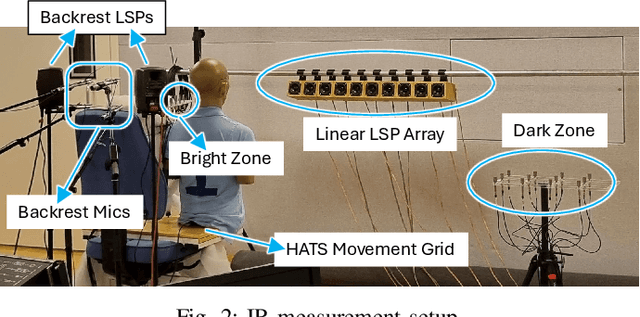

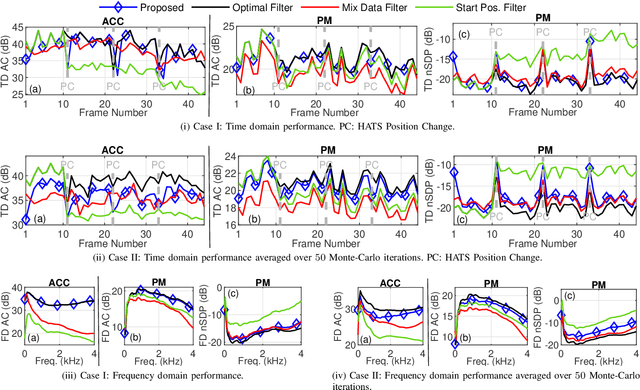
Abstract:Performance of sound zone control (SZC) systems deployed in practical scenarios are highly sensitive to the location of the listener(s) and can degrade significantly when listener(s) are moving. This paper presents a robust SZC system that adapts to dynamic changes such as moving listeners and varying zone locations using a dictionary-based approach. The proposed system continuously monitors the environment and updates the fixed control filters by tracking the listener position using audio signals only. To test the effectiveness of the proposed SZC method, simulation studies are carried out using practically measured impulse responses. These studies show that SZC, when incorporated with the proposed audio-only position tracking scheme, achieves optimal performance when all listener positions are available in the dictionary. Moreover, even when not all listener positions are included in the dictionary, the method still provides good performance improvement compared to a traditional fixed filter SZC scheme.
Sound Zone Control Robust To Sound Speed Change
Oct 10, 2024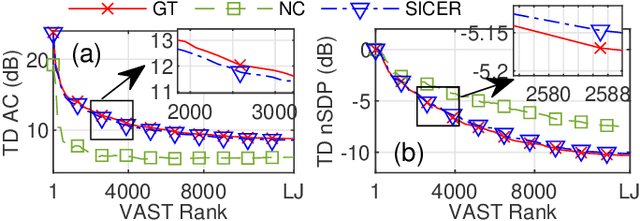
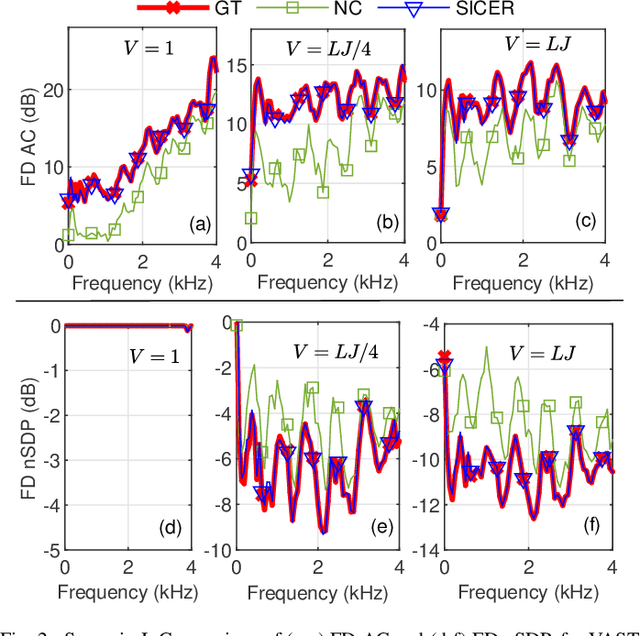
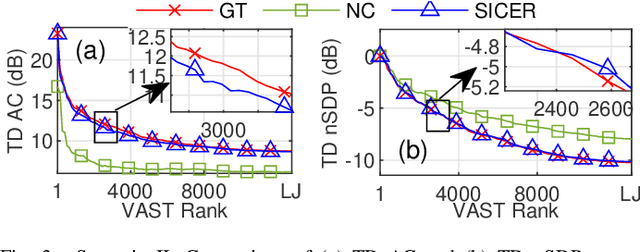
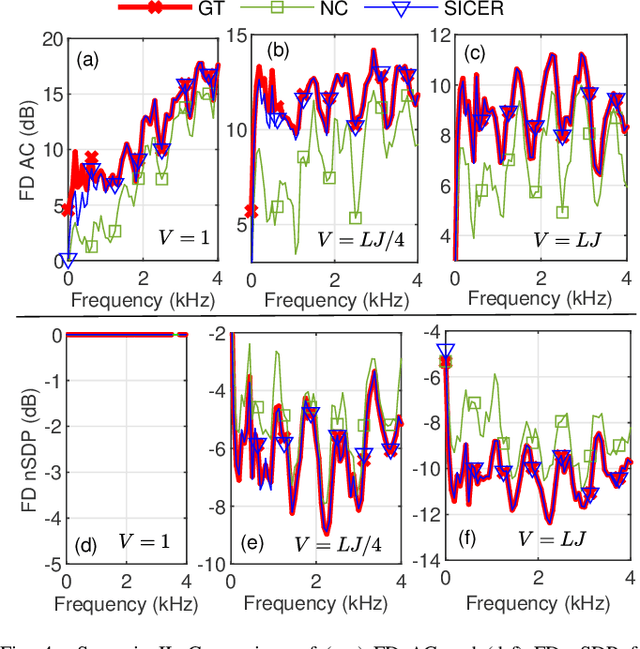
Abstract:Sound zone control (SZC) implemented using static optimal filters is significantly affected by various perturbations in the acoustic environment, an important one being the fluctuation in the speed of sound, which is in turn influenced by changes in temperature and humidity (TH). This issue arises because control algorithms typically use pre-recorded, static impulse responses (IRs) to design the optimal control filters. The IRs, however, may change with time due to TH changes, which renders the derived control filters to become non-optimal. To address this challenge, we propose a straightforward model called sinc interpolation-compression/expansion-resampling (SICER), which adjusts the IRs to account for both sound speed reduction and increase. Using the proposed technique, IRs measured at a certain TH can be corrected for any TH change and control filters can be re-derived without the need of re-measuring the new IRs (which is impractical when SZC is deployed). We integrate the proposed SICER IR correction method with the recently introduced variable span trade-off (VAST) framework for SZC, and propose a SICER-corrected VAST method that is resilient to sound speed variations. Simulation studies show that the proposed SICER-corrected VAST approach significantly improves acoustic contrast and reduces signal distortion in the presence of sound speed changes.
 Add to Chrome
Add to Chrome Add to Firefox
Add to Firefox Add to Edge
Add to Edge